|
Noted fraudster former Rep. George Santos made headlines last week when he sued television personality Jimmy Kimmel for – what else? – fraud after Kimmel broadcasted a series of 14 personalized Cameo videos he requested from the disgraced former congressman. It “may be the most preposterous lawsuit of all time,” said Kimmel. Yet, ironically, Santos’ former colleagues in Congress could soon be the ones to legitimize Santos’ claims.
Santos, expelled from Congress for a range of misdeeds including stealing from campaign donors and money laundering, is perhaps as ripe a target for satire as can be found in our astonishingly silly and self-centered era. Santos, days after being removed from the U.S. House of Representatives joined Cameo, a video service where B-list celebrities record personalized messages for a few hundred bucks a pop ($500 in Santos’ case), providing catnip for comedians. The No AI FRAUD Act now under consideration in Congress could make comedy a crime, or at least a tort. To be fair, the bill does address a real concern: it is intended to protect “Americans’ individual right to their likeness and voice,” providing actors, celebrities, and others the means to safeguard their image. But it is overbroad in addressing the pitfalls of artificial intelligence, an issue that has captured the minds – and anxieties – of lawmakers across the country. This bill would create a federal right to a digital “replica” akin to a right of publicity, recognized under many state laws. It would allow a plaintiff to sue for commercial misappropriation of one’s likeness or voice. As written, the bill would “restrict a range of content wide enough to ensnare parody videos, comedic impressions, political cartoons, and much more” (H/T Reason). Sponsors, Reps. María Elvira Salazar (R-Fla.) and Madeleine Dean (D-Pa.), are right to be concerned about AI-generated fakes and forgeries, as we saw in the recent AI fake of President Biden’s voice during the New Hampshire primary. But their bill is overbroad, capturing all manner of media representations currently protected by the First Amendment. Specifically, it prohibits any “replica, imitation, or approximation of the likeness of an individual that is created or altered in whole or part using digital technology.” That means an “actual or simulated image … regardless of the means of creation, that is readily identifiable as the individual.” Read this again – any imitation of an individual created by digital technology. Such a law could cover photos, recordings, parodies – even political cartoons. To quote Reason’s Elizabeth Nolan Brown, “if it involved recording or portraying a human, it’s probably covered.” A host of organizations have spoken out on the “No AI FRAUD Act,” including the Motion Picture Association, which argues that the creation of a digital “replica” right would “constitute a content-based restriction on speech.” As the Motion Picture Association wrote in a letter to Congress, “the government has no compelling interest in restricting creative depictions of public figures (including performers) in stories about them or the world they inhabit.” Congress should find ways to protect actors from having their image and career exploited without permission. This can be done without the chilling effects on artistic forms of expression, especially comedy and commentary. Doing so will require a nuanced and well-articulated bill. As it stands, the bill’s prohibitions are decidedly not funny. They could encompass sketch comedy, impressions, cartoons depicting real-life persona, or depictions of historical figures. As the Electronic Frontier Foundation wrote, “there’s not much that wouldn’t fall into [the category of prohibitions]—from pictures of your kid, to recordings of political events, to docudramas, parodies, political cartoons, and more. If it involved recording or portraying a human, it’s probably covered.” We need a sewing needle – not a hammer – to develop nuanced AI prohibitions that are consistent with the First Amendment. A bill that reads like it originated from a ChatGPT query doesn’t cut it. The U.S. Court of Appeals for the Second Circuit recently heard oral arguments in the case of Volokh v. James. It’s another in a series of critical recent cases involving government regulation of online speech – and one the Empire State should ultimately lose.
In 2022, distinguished legal scholar and Protect The 1st Senior Legal Advisor Eugene Volokh – along with social media platforms Rumble and Locals – brought suit against the state of New York after it passed a law prohibiting “hateful” conduct (or speech) online. Specifically, the law prohibits “the use of a social media network to vilify, humiliate, or incite violence against a group or a class of persons on the basis of race, color, religion, ethnicity, national origin, disability, sex, sexual orientation, gender identity or gender expression.” The law also requires platforms to develop and publish a policy laying out how exactly they will respond to such forms of online expression, as well as to create a complaint process for users to report objectionable content falling within the boundaries of New York’s (vague and imprecise) prohibitions. Should they fail to comply, websites could face fines of up to $1,000 per day. There are a number of problems with New York’s bid to regulate online speech – not least of which is that there is no hate speech exception to the First Amendment. As the Supreme Court noted in Matal v. Tam, “speech that demeans on the basis of race, ethnicity, gender, religion, age, disability, or any other similar ground is hateful; but the proudest boast of our free speech jurisprudence is that we protect the freedom to express ‘the thought that we hate.’” Moreover, the law fails to define key terms like “vilify,” “humiliate,” or “incite” – leaving its interpretation up to the eye of the beholder. As Volokh explained in a piece for Reason, “it targets speech that could simply be perceived by someone, somewhere, at some point in time, to vilify or humiliate, rendering the law's scope entirely subjective.” Does an atheist’s post criticizing religion “vilify” people of faith? Does a video of John Oliver making fun of the British monarchy “humiliate” the British people? The hypotheticals are endless because one’s subjective interpretation of another’s speech could cut a million different ways. In February 2023, a district court ruled against New York, broadly agreeing with Volokh’s arguments. As Judge Andrew L. Carter, Jr. wrote: “The Hateful Conduct Law both compels social media networks to speak about the contours of hate speech and chills the constitutionally protected speech of social media users, without articulating a compelling governmental interest or ensuring that the law is narrowly tailored to that goal.” To be fair, there is a purported government interest at play here, even if it’s not compelling in the broader context of the law’s vast, unconstitutional reach. The New York law is a legislative response to a 2022 Buffalo supermarket shooting perpetrated by a white supremacist who was, by all accounts, steeped in an online, racist milieu. Every decent person wants to give extremist views no oxygen. But incitement to violence is already a well-established First Amendment exception – unprotected by the law. Broadly compelling websites to create processes for addressing subjective, individualized offenses simply goes too far. Anticipating New York’s appeal to the Second Circuit, a number of ideologically disparate organizations joined with the Foundation for Individual Rights and Expression, or FIRE, (which is prosecuting the case), submitting amicus curiae briefs in solidarity with Volokh and his co-plaintiffs. Those groups – which include the American Civil Liberties Union, the Electronic Frontier Foundation, the Cato Institute, and satirical website the Babylon Bee – stand in uncommon solidarity against the proposition that government should ever be involved in private content moderation policies. As the ACLU and EFF assert, "government interjection of itself into that process in any form raises serious First Amendment, and broader human rights, concerns." True to form, the Babylon Bee’s brief notes that “New York's Online Hate Speech Law would be laughable – if its consequences weren't so serious.” When the U.S. Supreme Court renders its opinion on the Texas and Florida social media laws, it will give legislatures a better guide to developing more precise, articulable means of addressing online content. Less than a year after his children were nearly murdered in the 2022 school shooting at Robb Elementary School in Uvalde, Texas, Adam Martinez was banned from school property and school board meetings for two years. His offense? Daring to raise his concerns for the safety of schoolchildren with the chief of police.
The world watched the Uvalde shooting at this school in horror: A former student fatally shot 19 students and two teachers. Security camera footage during the shooting showed Uvalde police officers standing by for more than an hour while this atrocity unfolded. Had police intervened, it is entirely likely many lives would have been saved. The police have been roundly condemned and a full investigation and reorganization is underway, so you might think the police would be more receptive to criticism, especially from Robb Elementary parents. It turns out that’s not the case. Martinez has been a leader in his community since the shooting. He started a local group that organized fundraisers for victims of the shooting, engages in community service in Uvalde, and advocates for improvements in school safety. Martinez has spoken out online, at school board meetings, and directly with Uvalde administrators in support of these goals. According to FIRE, in February 2023, Martinez discovered the school district had recently hired an officer the sheriff’s office deemed ineligible for rehire. At a school board meeting that month, Martinez approached Uvalde Schools Police Chief Josh Gutierrez to express his concerns about the hire. Though Gutierrez was initially receptive, he quickly sought to shut down the conversation when it became clear that Martinez was criticizing him. Gutierrez told Martinez to sit down, who refused and pressed his point. Gutierrez then “verbally banned” Martinez from school district property and told him and his family to leave. The following day, Martinez received a letter stating that he was banned from school district property for the next two years. FIRE quickly became involved and sent a letter to the district in May, threatening to sue if the district did not lift the unconstitutional ban. The school district responded in July, formally dropping the ban against Martinez. Protect The 1st commends FIRE on a job well done. We hope the resolution of this incident will encourage school boards around the country to respect the right of parents to speak up. In districts with concerns less fraught than those of Uvalde, disagreements over ideological instruction often become heated. Democracy has always been disputatious. While we recognize exceptions for true threats and obscene language, the speech rights of angry parents should not be diminished by their anger. Reporters treat promises of confidentiality to potential sources as sacred for a reason. The promise of anonymity is the bedrock upon which investigative journalism rests. This promise is so central to a free press that a bill to codify its protection is currently wending its way through Congress. The PRESS Act would protect journalists and their sources by granting a privilege to shield confidential news sources in federal legal proceedings.
CBS went one step further after it terminated investigative journalist Catherine Herridge: the news division reportedly seized her files, including private information about privileged sources. Lawyer Jonathan Turley writes CBS is “moving toward a resolution,” with some reports indicating CBS has already returned the files. But the initial action, which sparked widespread concern among CBS employees, is instructive about the need to protect reporters and sources. Turley in The Hill wrote that the “the timing of Herridge’s termination immediately raised suspicions in Washington. She was pursuing stories that were unwelcomed by the Biden White House and many Democratic powerhouses,” which landed her in hot water with CBS executives. After she was terminated, the network seized her notes and files, informing her that it would decide what would be released to her. Such an action defied established media tradition. “Journalists are generally allowed to leave with their files,” Turley writes. “Under the standard contract, including the one at CBS, journalists agree that they will make files available to the network if needed in future litigation. That presupposes that they will retain control of their files.” CBS also suggested that it would allow unnamed individuals to look through Herridge’s files to determine what she would have been allowed to keep. A former CBS manager said that he had “never heard of anything like this.” The Screen Actors Guild-American Federation of Television and Radio Artists union (SAG-AFTRA) has raised the issue with CBS, noting the effect of this action could have on journalistic practices and source confidentiality. If this issue is, in fact, not resolved as reported, the union could well take this to court to test Herridge’s claim to her notes. Why did CBS News risk tarnishing its own legacy? It shouldn’t matter if Herridge’s investigation is of Hunter Biden’s laptop, Donald Trump, Robert F. Kennedy Jr., or the My Pillow Guy. By originally suggesting that CBS will unilaterally decide the fate of Herridge's files, including those originating from her tenure at Fox News, the network risked undermining the willingness of sources to come forward with sensitive information for all news gatherers. This is one more reason why Protect The 1st stands firmly in favor of The PRESS Act. As we wrote last November, ironically about Catherine Herridge in a different context, the PRESS Act would have made a difference when she was ordered by a federal judge to reveal the identity of confidential sources she used for a series of 2017 stories published while she worked at Fox News. If CBS did hold on to the files, it could easily lose control of them through a leak or litigation. If ordered by a court to reveal these documents, would executives have risked jail time like Herridge has done? Although the First Amendment does not apply to a private company, CBS News should not be less supportive of a free press than the government. When does a legal reporting requirement for a social media company become a violation of the First Amendment? When it drums up public and political pressure to enforce viewpoint discrimination.
This is the conclusion of legal scholar Eugene Volokh and Protect The First Foundation, which filed an amicus brief late Wednesday before the Ninth Circuit Court of Appeals asking it to overturn a lower court ruling that upheld a California law requiring social media companies to disclose their content moderation practices. California Bill AB 587, signed into law by Gov. Gavin Newsom in 2022, compels social media companies to produce two such reports a year on their moderation practices and decisions, to be published on the website of the California Attorney General. This law “violates the First Amendment’s stringent prohibition on viewpoint discrimination” by “requiring social media companies to define viewpoint-based categories of speech,” declared Volokh, Senior Legal Advisor to Protect The 1st. “The law also requires these companies to report their policies as to those viewpoints, but not other viewpoints ...” This brief supports the challenge from X Corp.’s lawsuit filed in September 2023 that also asserted that AB 587 violates the First Amendment, which “unequivocally prohibits this kind of interference with a traditional publisher’s editorial judgment.” Volokh and Protect The 1st cited the landmark U.S. Supreme Court case, NAACP v. Alabama (1958), in which the Court overturned an Alabama law that would have compelled disclosure of the NAACP’s membership lists. The threat behind this law, the Court noted, relied on governmental and private community pressures that would result in the harassment of individuals and discouragement of their speech. “Generating either massive fines or public ‘pressure,’ a euphemism for public hostility, triggers the most exacting scrutiny our Constitution demands,” Volokh told the court. “California Assembly Bill 587 violates the First Amendment’s stringent prohibition on viewpoint discrimination. And AB 587 does so by leaning on social media companies to do the government’s dirty work, either through fear of fine or public pressure.” The brief cites a Supreme Court opinion that states “what cannot be done directly [under the Constitution] cannot be done indirectly.” Volokh writes: “The intent behind the law is clear from its legislative history, comments by its enforcer (Attorney General Rob Bonta), and common sense. That intent is to strongarm social media companies to restrict certain viewpoints—to combine law and public pressure to do something about how platforms treat those particular viewpoints, and not other viewpoints. That confirms that the facial viewpoint classification in the statute is indeed a viewpoint-based government action aimed at suppressing speech—and that violates the First Amendment.” Protect The 1st will continue to report on X Corp.v. Bonta as an important flashpoint in the continuous struggle to keep speech free of official regulation. Should we move to a post-Section 230 internet? Is liability-free content hosting coming to an end?
In Wired, Jaron Lanier and Allison Stanger argue for ending that provision of the Communications Decency Act that protects social media platforms from liability over the content of third-party posts. The two have penned a thoughtful and entertaining analysis about the problems and trajectory of a Section 230-based internet. It’s worth reading but takes its conclusions to an unjustifiable extreme – with unexamined consequences. The authors assert that while Section 230 may have served us well for a time, they argue that long-running negative trends have outpaced the benefits that Section 230 provided. The authors write that modern, 230-protected algorithms heavily influence the promotion of lies and inflammatory speech online, which it obviously does. “People cannot simply speak for themselves, for there is always a mysterious algorithm in the room that has independently set the volume of the speaker’s voice,” Lanier and Stanger write. “If one is to be heard, one must speak in part to one’s human audience, in part to the algorithm.” They argue algorithms and the “advertising” business model appeal to the most primal elements of the human brain, effectively capturing engagement by promoting the most tantalizing content. “We have learned that humans are most engaged, at least from an algorithm’s point of view, by rapid-fire emotions related to fight-or-flight responses and other high-stakes interactions.” This dynamic has had enormous downstream consequences for politics and society; Section 230 “has inadvertently rendered impossible deliberation between citizens who are supposed to be equal before the law. Perverse incentives promote cranky speech, which effectively suppresses thoughtful speech.” All this has led to a roundabout form of censorship, where arbitrary rules, doxing, and cancel culture stifle speech. Lanier and Stanger call this iteration of the internet the “sewer of least-common-denominator content that holds human attention but does not bring out the best in us.” Lanier and Stanger offer valid criticisms of the current state of the net. It is undeniable that discourse has coarsened in connection with the rise of social media platforms and toxic algorithms. Worse, the authors are correct that algorithms provide an incentive for the spreading of lies about people and institutions. Writing that John Smith is a lying SOB who takes bribes will, to paraphrase Twain, pull in a million “likes” around the world before John Smith can tie his shoes. So what is to be done? First, do not throw out Section 230 in toto. As we previously said in our brief before the U.S. Supreme Court with former Senator Rick Santorum, gutting Section 230 “would cripple the free speech and association that the internet currently fosters.” Without immunity, internet platforms could not organize content in a way that would be relevant and interesting to users. Without Section 230 protections, media platforms would avoid nearly any controversial content if they could be frivolously sued anytime someone got offended. Second, do consider modifications of Section 230 to reduce the algorithmic incentives that fling and spread libels and proven falsehoods. Lanier and Stanger make the point that the current online incentives are so abusive that the unhinged curtail the free speech of the hinged. We should explore ways to reduce the gasoline-pouring tendency of social media algorithms without impinging on speech. Further reform might be along the lines of the bipartisan Internet PACT Act, which requires platforms to have clear and transparent standards in content moderation, and redress for people and organizations who have been unfairly deposted, deplatformed, and demonetized. Lanier and Stanger are thinking hard and honestly about real problems, but the problems they would create would be much worse. A post-230 social media platform would be either be curated to the point of being inane, or not curated at all. Now that would be a sewer. Still, we give Lanier and Stanger credit for stimulating thought. Everyone agrees something needs to change online to promote more constructive dialogue. Perhaps we are getting closer to realizing what that change should be. The accidental release by the Los Angeles Police Department of thousands of officers’ photo headshots – including, inadvertently, those of police working undercover – has resulted in a spiderwebbing series of hostile legal actions drawing in the LAPD, an angry police union, an even angrier group of undercover officers, press advocates, City Attorney Heidi Feldstein Soto, and Mayor Karen Bass. Finger pointing abounds. Yet, the party arguably at the center of the controversy is Knock LA journalist Ben Camacho, now being sued by the city to recover the costs of its own clerical error.
Camacho received the photos in 2022 pursuant to a California Public Records Act request. While the LAPD initially fought back against providing headshots of active-duty officers, they eventually capitulated following a settlement agreement in which they assented to providing all available photos except for those of officers serving in an undercover capacity. Except, they provided those, too. Soon after, at least two groups of police officers sued the LAPD. And in April, the LAPD filed suit against Camacho to prevent publication of the more than 9,300 images. That’s where press advocates came into the picture. As the Reporters Committee for Freedom of the Press pointed out in its amicus brief, “the Supreme Court of the United States has long recognized prior restraints as the ‘most serious and the least tolerable infringement on First Amendment rights’ because they are ‘an immediate and irreversible sanction’ not only ‘chill[ing]’ speech but also ‘freez[ing]’ it, at least for a time. This constitutional harm is magnified when the government seeks the removal of already published information.” Indeed, the Court has on multiple occasions made it clear that when the government releases information, even if accidentally, it can’t then attempt to gag the press to prevent publication. That established legal reasoning apparently didn’t sway the Los Angeles Superior Court, which ruled for the City of Los Angeles. Camacho has since appealed. Another twist in this saga occurred more recently when the city sued Camacho for indemnification. As Freedom of the Press Foundation advocacy director Seth Stern said, the “city has hit the trifecta of anti-press First Amendment violations: first, demanding journalists give back documents the government released, second, censoring journalists from publishing information, and now, holding journalists financially liable for truthful publications ...” State intimidation of the press is nothing new, but it seems to be taking on a troubling new tenor. At Protect The 1st, we’ve documented a series of recent efforts by power-drunk officials to punish reporters for committing acts of journalism. In Alabama, a small town publisher and reporter were arrested for reporting on a grand jury leak about the alleged mishandling of COVID relief funds. In Kansas, police raided the Marion County Record in an effort to track down an informant who revealed information about a local restauranteur’s DUI. In that instance, the paper’s 98-year-old co-owner died a day after her home was raided. The LAPD debacle is further evidence of declining respect for the First Amendment and a free press. The City of Los Angeles should cease its legal gesticulating, own up to its mistake, and move on. Honest reporters should not pay for government slip-ups. Earlier this year, the student senate at Columbia Law voted to deny official recognition to Law Students Against Antisemitism, a student group seeking to “raise awareness and educate about both historical and contemporary antisemitism.” Nine other organizations requested official recognition this year, with LSAA being the only group to be denied so far. The reason? According to FIRE, “the rejection appeared to rest on objections to LSAA’s definition of antisemitism, which some pro-Palestine students opposed.”
Although the student senate quickly reversed course, the American Bar Association took it as an opportunity to formalize speech protections. This month, the ABA House of Delegates passed a resolution to adopt Standard 208, a new rule requiring law schools to “protect the rights of faculty, students and staff to communicate ideas that may be controversial or unpopular, including through robust debate, demonstrations or protests.” ABA accreditation requires adhering to Standard 208, or else law schools could be denied accreditation or have it revoked for failing to protect free speech. The importance of this rule should not be missed. As the ABA Journal states, Standard 208 is “the first accreditation standard to address free speech for the entire community within law schools.” Protect The 1st Senior Legal Advisor Eugene Volokh said: “the standard is another tool in the toolbox of a dean who wants to protect free speech and academic freedom … The dean can tell student activists, ‘Look, do you want us to lose our accreditation?’” Nevertheless, Standard 208 is only a Band-Aid to the broader cultural decay for the respect of free speech and intellectual diversity in law schools. “I’ve had a lot of students complain to me that they are reluctant to speak out in class – not because they’re afraid of discipline, but because they’re afraid their classmates will ostracize them,” Volokh said. “But you can’t have a rule to stop that.” The past few years have seen no shortage of campus incidents that would certainly have gone against Standard 208 had it been in effect. Stanford Law students shouted down Judge Stuart Kyle Duncan of the Fifth Circuit Court of Appeals when he came to give a talk in March of last year. Similarly at Yale, Kristen Waggoner of the Alliance Defending Freedom was harassed by an ugly protest over a (irony alert) panel discussion about free speech. Law schools increasingly resemble the hostile and immature playgrounds that undergraduate institutions have become. While Standard 208 will help, we have a long way to go before free speech will be fully restored. The Fifth Circuit Court of Appeals just dealt a serious blow to the freedom of the press, endorsing immunity for arresting a reporter for simply asking questions of the government and publishing the answers. The case, Villarreal v. City of Laredo Texas, arose when Facebook vlogger-journalist Priscilla Villarreal, who goes by the self-deprecating nickname Lagordiloca (“crazy, fat woman”) was detained for her coverage of a traffic accident and the suicide of a U.S. Border Patrol employee in Laredo.
Villarreal swore that she corroborated the names of the deceased individuals in the suicide and traffic accident with a source in the Laredo Police Department – taking this step after independently verifying these identities. In response to her reporting, Villarreal was detained and charged with violating a Texas law that makes it a crime to solicit nonpublic information from a public servant “with intent to obtain a benefit.” During the booking process, officers surrounded Villarreal, mocked her, and took cellphone photos of her while she was being fingerprinted. The case had already appeared before the Fifth Circuit Court of Appeals in 2022, when a panel of judges originally sided with Villarreal. Judge Ho, writing for the court, held that “if the First Amendment means anything, it surely means that a citizen journalist has the right to ask a public official a question, without fear of being imprisoned.” The en banc appeal, which was decided recently, held that city officials were entitled to qualified immunity and that “Villarreal sought to capitalize on others’ tragedies to propel her reputation and career.” Such weaponized language could easily be leveled against any news outlet in the country. This case sets a bad precedent for the freedom of the press if reporters can’t ask government officials questions without fear of arrest and other reprisals, with the police inflicting such injury held immune for any consequences. Consider one case in November, when reporter Hank Sanders was cited for persistently asking Calumet City officials for a comment about flooding in the town. The citation was ultimately dropped after city officials realized that enforcing the citation would prove to be more of a hassle than simply responding to Sanders and his questions. Or consider the rural Kansas police department that ransacked the offices of the Marion County Record in execution of a search warrant to track down an informant. The leaked information? A local restauranteur’s DUI record that the newspaper had already decided not to print. Computers were seized, cell phones were snatched, all just to bully the press. We have long counted on a judicial buffer to correct local abuses. Thanks to the Fifth Circuit’s expansive view of qualified immunity, and seemingly narrow view of First Amendment rights, that buffer just became thinner. If the same standard that the Fifth Circuit endorsed were to be adopted across the country, journalists would be left with little recourse when law enforcement comes crashing through their doors, but ultimately declines to prosecute them. In his dissent in the Villarreal case, Judge James Graves wrote that the Fifth’s opinion means journalists “will only be able to report information the government chooses to share” lest they face arrest and other harassment. Villarreal has already declared her intent to appeal to the U.S. Supreme Court. Protect The 1st supports Villarreal’s appeal and looks forward to her vindication for the sake of all American journalists. A recent Wall Street Journal op-ed made the case for school choice as an antidote to “illegal work stoppages” in the educational system.
In January, the Newton Teachers Association in Massachusetts staged a walkout in pursuit of higher pay, despite earning an average of more than $93,000 per employee (8 percent higher than the average statewide salary). The work stoppage left 12,000 Newton schoolchildren abandoned for weeks, with courts attempting in the interim to enforce a 1973 law prohibiting Massachusetts public employees from striking. The Journal contends that making per-pupil spending directly available to parents and children to choose their own educational paths will disincentivize disruptions like the one that took place in Newton. That is doubtlessly true. For our part, Protect The 1st values school choice not for any operational or political reason, but because it substantiates the guarantees of the First Amendment. It permits parents, religious or nonreligious, conservative or liberal, to find schools that best fit the values they want to pass on to their children. Research proves that school choice brings powerful improvements in academic results and in children’s lives. It empowers parents and it challenges public schools to do better. That is why school choice is sweeping the nation, with 10 states passing universal school choice since 2021 and many others creating education savings accounts that allow public funds to follow the child. The school choice movement would do well to steer clear of any hint of union-busting (which itself implicates First Amendment rights to free association). Instead, let’s look at the measurable benefits over time – not least of which is allowing parents to pass down their values and children to achieve excellence. Such a change would not only be in the best interests of parents and their children. It would be in the enlightened self-interest of teachers themselves, offering many new opportunities for flourishing careers. The Foundation for Individual Rights and Expression, in collaboration with the Academic Freedom Alliance and the Heterodox Academy, has penned an open letter urging the trustees and regents of American universities to “put neutrality above politicized institutional statements that threaten open debate on college campuses.”
The letter is specifically addressed to the trustees of universities, who wield considerable power to set institutional policy. “It is time for those entrusted with ultimate oversight authority for your institutions to restore truth-seeking as the primary mission of higher education by adopting a policy of institutional neutrality on social and political issues that do not concern core academic matters or institutional operations,” the letter says. “In recent years, colleges and universities have increasingly weighed in on social and political issues. This has led our institutions of higher education to become politicized and has created an untenable situation whereby they are expected to weigh in on all social and political issues." The letter specifically calls on every university to adopt an institutional neutrality policy, much like that espoused by the Kalven Report of the University of Chicago authored in 1967. The letter quotes that report, noting that institutional neutrality is necessary “to pursue truth through ‘the discovery, improvement, and dissemination of knowledge.’ And to accomplish this mission, ‘a university must sustain an extraordinary environment of freedom of inquiry and maintain an independence from political fashions, passions, and pressures.’” Greg Lukianoff, President and CEO of FIRE, said that “a top-down, father-knows-best mentality is absolutely no way to support the next generation of free thinkers. Students and faculty deserve the freedom to experiment with different perspectives and explore entirely new ways of thinking without the college claiming to have done all the thinking for them.” The open letter follows on the heels of FIRE’s annual college free speech index, in which not a single university received a score higher than 79 out of 100. If this were a college class, that would be a C+ ranking. Many of America’s most prestigious institutions receive abysmal rankings. Harvard received a score of zero, which was rounded up because the index couldn’t accommodate negative numbers. Protect The 1st applauds FIRE’s open letter to university trustees and regents. The state of free inquiry in American universities is dire. We need bold leadership to right the course. We look forward to further developments in this story. Long before the founding of the United States, religious refugees flooded into America to escape the Star Chamber, the Inquisition, the persecutions, and wars over religious doctrine that made worship in the Old World a dangerous activity. Millions wanted relief from the incessant surveillance – exemplified by William Laud, Charles I’s Archbishop of Canterbury – that often relied on spies dispatched to listen to sermons with sharp ears for anything out of line with official orthodoxy.
The House of Representatives is preparing to decide whether to include surveillance reforms in the reauthorization of Section 702 of the Foreign Intelligence Surveillance Act. This legislation will have serious implications for the free practice of religion in America. House Speaker Mike Johnson in an interview late last year addressed the FBI’s surveillance of traditional Catholics as possible terrorists, and the targeting of pro-life activists like Mark Hauck, whose wife and seven children watched in terror as an FBI swat team broke down their front door and pointed five guns at his head over a supposed violation of the Freedom of Access to Clinic Entrances Act. “I’ve made it very clear that, in my view, the evidence shows that, the FBI, for example, in the last couple of years has been weaponized,” Speaker Johnson told The Daily Signal. “We have the evidence to show it. They have, in some cases, targeted people of faith. They’ve targeted conservative Catholics and concerned parents at school board meetings … that’s what happened.” Alex Marthews of Restore the Fourth documents abuses of religious rights from church- organized civil rights protests in the 1960s to the surveillance of patriotic, law-abiding Muslims today. We recently reported on the creepy surveillance of Calvary Chapel in San Jose, California. Such government snooping into religious expression is enabled by two massive databanks that the government freely dips into without a warrant. One is Section 702, an authority that allows the surveillance of foreign targets located abroad, but incidentally collects the communications of millions of Americans. The FBI has dipped into this ocean of Americans’ communications millions of times in recent years without warrants. The other database is the commercial purchase of our most sensitive and personal information scraped from apps and sold to the FBI, IRS, Department of Homeland Security, and many other agencies. This, too, is information the government holds and freely accesses, all without a warrant. There are deep implications for the character of our nation in the growth of warrantless surveillance. Religious scholar David Lyon writes of the modern replacement of the idea of a God, who watches his creation with deep and loving concern, with the state’s Algorithm, replacing eternal joy with a perpetual living death. Or to put it in secular terms, this is the vision of George Orwell of a boot stamping on a human face forever. Any House Member who values the freedom to worship as one wishes, or not to worship at all, should take a stand for religious freedom by requiring warrants before the FBI or any other governmental agency can freely inspect our beliefs, values, and activities. This is not a new or radical notion. The founders wrote the warrant requirement into the Fourth Amendment to the Constitution to set us apart from Old World ways. Let us not go back. Klein v. Oregon Bureau of Labor and Industries The Oregon Court of Appeals is once again considering the case of Aaron and Melissa Klein, owners of Sweet Cakes by Melissa after the U.S. Supreme Court twice sent their case back for reconsideration by that state court.
As Yogi Berra said, it’s like déjà vu all over again. This case began 11 years ago when the Oregon Bureau of Labor & Industries (BOLI) fined the Kleins $135,000 for declining to make a cake promoting a gay commitment ceremony, which the Kleins said violated their religious beliefs. While it would be illegal – and should be – to refuse to serve food, lodging, or a million other items to people on the basis of their sexual orientation, this case touched on the First Amendment rights of the Kleins not to create a message that violates their religious belief. The state regulator even slapped the Kleins with a gag order that prevented them from discussing their case. “We welcomed and served everyone in our bakery, but we could not endorse all messages,” Melissa Klein said. “Freedom of speech has always included the freedom not to speak the government’s message,” said Stephanie Taub, senior counsel to First Liberty Institute, which represents the Kleins. “The First Amendment protects all Americans, of different perspectives and beliefs, to not be forced to use their art to send a message with which they disagree.” After the Supreme Court ruled in favor of Jack Phillips in Masterpiece Cake Shop v. Colorado Civil Rights Commission in 2018 for refusing to make a cake for a same-sex wedding, the high court sent the Klein’s case back to Oregon. BOLI responded with a vengeance, this time imposing a $30,000 fine on the Kleins. In June 2023 the Supreme Court for the second time sent this case back to the state for reconsideration, this time on the basis of its 303 Creative LLC v. Elenis, which allowed business owners to decline a service if it required them to create a message contrary to their religious beliefs. The Court clearly believes that the same principle that applies to a website designer also protects the religious rights of a baker. How many times will a state regulatory body be allowed to refuse to acknowledge the authority of the U.S. Supreme Court? In January, the Oregon court heard oral arguments in this case to test that principle. It is time for the Oregon court to tell state regulators: this cake is baked. “Who can we talk to about the high levels of propaganda and misinformation and disinformation of Amazon?” Andrew Slavitt, a former White House senior adviser for COVID-19 response, wrote in an email on March 2, 2021.
Rep. Jim Jordan, Chairman of the House Judiciary Committee, on Tuesday released this missive along with a mass of subpoenaed material in his investigation of what was clearly government intervention to censor books. Slavitt’s email was the beginning of a White House effort to pressure Amazon into pulling or depressing the visibility of books that conflicted with the scientific orthodoxy on the safety of vaccines and COVID-19 related policies. Amazon initially resisted, but not on free speech grounds. An Amazon executive in an internal email revealed by Jordan declared: “We will not be doing a manual intervention today.” The reason? The “team/PR feels very strongly that it is too visible” and such censorship would rile conservatives, prompting Amazon to get “the Fox News treatment.” You might regard vaccine skepticism as the equivalent of a flat-Earth, antiscientific conspiracy theory. On the other hand, Richard Epstein – legal scholar and erudite public intellectual – argued that lockdowns were doing more harm than good, and that there are valid reasons to question the efficacy and safety of COVID-19 vaccines. Many scientists and writers have piled on Epstein’s theories as riddled with errors, to which Epstein has responded. We have seen time and again in science and policy that today’s outlandish idea could become tomorrow’s orthodoxy. Or not. The question for now is – are we better off suppressing a debate of urgent personal as well as public interest? Or should we let the science and public policy get sorted out in open debate? Such questions once did not need to be asked. In recent years, the value of the First Amendment has gotten lost in the weeds, especially among people with outstanding educations from elite institutions (Andrew Slavitt: University of Pennsylvania and Harvard) which, somehow, are failing to impart the basics most Americans were once taught in high school civics. To be clear, on First Amendment grounds, Amazon has every right to choose and reject books in its portfolio. If a certain author named Humbert Humbert submitted a book entitled, “How to Seduce Fourteen-Year-Old Girls,” Amazon would be well within its rights to decline it (not to mention call the police). But Amazon is a special company with a special responsibility to the spirit, if not the letter, of the First Amendment. Consider: Amazon sells 300 million print books a year. It is responsible for more than one-half of the sales of the Big Five publishers and controls up to 80 percent of the book distribution in the United States. When Amazon disallows or suppresses the sale of a book, it effectively kills it. One would expect Amazon to give maximum room for unpopular or iconoclastic ideas, whatever the PR or political consequences. Most important of all, the First Amendment applies to government action. Pressure from the White House ultimately succeeded in persuading Amazon to issue a “Do Not Promote” order for books skeptical about vaccines. That is government censorship, directly forbidden by the First Amendment. The urge to stop people one believes are clearly wrong, with public policy prescriptions that are dangerous, is a temptation that merely compounds the danger. Conservatives regard progressive ideas as dangerous, and liberals see conservatives as the dangerous ones. Neither side can be trusted with the power to censor the other. Nor can government be trusted to treat ideas as a regulated industry. Credit goes to Chairman Jordan for revealing this official act of censorship. Pastor Sues City for “Harassment” Campaign Over Homeless Ministry Police in Bryan, Ohio, filed charges against Dad’s Place Church Pastor Chris Avell for city code violations at his overnight, downtown shelter for the homeless. Avell’s alleged crimes are for mundane breaches – failing, for example, to provide adequate kitchen and laundry facilities, as well as commercial zoning violations (despite the fact that Dad’s Place is located next to a homeless shelter and across the street from a temporary residence for victims of domestic violence).
Pastor Avell says he tried to work with city officials to address any deficiencies, including installing a hood over a kitchen stove and placing new equipment in the building’s laundry facility. A clear pattern of harassment continued, Avell alleges, with the city even going so far as to issue a press release laying out a narrative suggesting Dad’s Place was a nexus for “criminal mischief, trespassing, overdose, larceny, harassment, disturbing the peace and sexual assault.” Zoning rules and safety requirements exist for a reason and should be followed yet a municipality goes too far when it leverages such rules to exert undue pressure on anyone acting in good faith to comply. We suspect similar scrutiny could yield a number of infractions with other Bryan businesses and non-profits. Is closing a homeless ministry good public policy? Do the city leaders prefer people sleeping in parks? Are the homeless safer if they freeze to death? Pastor Avell sees not just bad public policy in the city’s actions, but also deep infringements over religious practice and its expression through charity. So Avell has filed suit in Ohio federal court accusing the city of violations of the Free Exercise Clause and Establishment Clause of the First Amendment, as well as the Equal Protection Clause of the Fourteenth Amendment. As the complaint puts forward, “[t]hose actions discriminate against the Church on the basis of religion, advance no compelling government interest, and are far from the least restrictive means of advancing the City’s purported – albeit pretextual – goals.” As the lawsuit states: “No history or tradition justifies the City’s intrusion into the Church’s inner sanctum to dictate which rooms may be used for religious purposes, how the church may go about its religious mission, or at what hours of the day religious activities are permitted.” While the specifics of this case must be sorted out in court, Protect The 1st has reported on similar cases in which local governments seem to act from an animus toward religion – failing to understand that charitable activity in virtually every faith is a religious expression. Perhaps city officials would do well to look to the Book of Isaiah, which declares, “Is it not to share your food with the hungry and to provide the poor wanderer with shelter – when you see the naked, to clothe them, and not to turn away from your own flesh and blood?” Protect The 1st will follow this case as it progresses. Woman Arrested for Social Media Snark While High Court Protects Suspect’s Right to Tell Police to “Worry About a Head Shot”A woman in Morris County, New Jersey, was arrested in December for her social media posts that officials say constituted threats of terrorism, harassment, and retaliation. The last two of those “threats” seem to pertain to the authorities, who stretched statements from the merely obnoxious to appear as a “true threat.”
Monica Ciardi had been posting to Facebook for weeks about her child custody dispute. Her posts, coming by the dozens, criticized her ex-husband and the Morris County judges presiding over her case. In late December, police finally arrested Ciardi for posting “Judge Bogaard and Judge DeMarzo: If you don’t do what I want then you don’t get to see your kids. Hmm.” Here’s the catch, Ciardi was parroting what the two judges said to her, accidentally forgetting to use quotation marks. Ciardi had meant to post what the judges had declared in court – that if she didn’t do what they wanted, then she wouldn’t get to see her children. Ciardi offered an insightful metaphor: “This is my personal Facebook page with 50 people on it. They came to my page and then turned around and said I harassed them. That’s like if I know you don’t like me, I go to your house, I stand on your front porch, I overhear you saying bad things about me, and then I call the cops and say, ‘She’s harassing me. I know I’m on her porch, but you should just hear what she said.'” Ciardi’s attorney said the incident amounted to “the government punishing and jailing a woman for simply speaking her mind.” Ciardi claims her experience in jail was a nightmare. While there, she says that she received death threats, saw several assaults, and got caught in the line of fire of correctional officers’ pepper spray twice. She says she suffered panic attacks, lost 15 pounds, and was placed in protective custody, which meant she didn’t leave her cell “for more than 45 minutes two to three times a week, max.” That’s stiff punishment for venting frustrations online. Ciardi spent 35 days in jail until Superior Court Judge Mark Ali, who had originally ordered her detention, ordered her release. Ali cited a recent New Jersey Supreme Court ruling that raised the bar for terroristic threat charges. That case, too, is problematic, but for the opposite reason. Even a First Amendment organization like our own is agog at that ruling. The New Jersey high court ruled on Jan. 16 that a man who told police during a domestic disturbance call to “worry about a head shot” if they enter his property. He also posted online that he knew where the officers lived and the cars they drove. The court ruled that prosecutors had failed to prove that such statements were credible threats that “instill fear of injury in a reasonable person in the victim’s position” and are not merely “political dissent or angry hyperbole.” While we are pleased to see that Ciardi has been released, we disagree with the New Jersey court’s new precedent. In the case of the “head shot,” the threat was made against the putative target, the police. Unless the comment was made in an obviously sarcastic way or in some manner that indicated its insincerity, law enforcement should be able to take such claims seriously. There must be an easy line to be drawn between arresting a woman for her Facebook posts about a pending trial and a true threat of violence against law enforcement officers. We look forward to further developments in this latest case. At a recent conference in Washington, D.C. on surveillance of religious minorities in China, we heard evidence – well documented by many journalists – that China is using facial recognition (with racial filters), car sensors, cell-site simulators and location tracking to systematically surveil that country’s Uighur Muslim and Tibetan Buddhist minorities.
A recent Human Rights Watch whitepaper details how China’s authorities are also systematically collecting DNA in Tibet. The cover story for one such program for people aged 12 to 65 is that the government is performing a health-check program called Physicals For All – though patients are not allowed to learn the results of any of their tests. DNA testing in Tibet is, to paraphrase the Godfather, an offer that cannot be refused. With this data, the government can track people by ethnicity and map their families by their genes and presumed beliefs. The most pernicious aspect of this program is the collection of children’s DNA, a unique identifier that will never change. Such genetic surveillance also necessarily connects a whole bloodline to one person suspected of religious dissidence – what Chinese police call “one household, one file.” Such files can be used to track people who lead worship services or advocate religious or secular views not approved by the government. This program of police-community relations is called “spreading information tentacles.” DNA is also used to identify (and presumably, from samples located at a given site or shrine) to track clerics and lamas, village elders, and others who might be engaged in meetings or conducting unofficial mediation of local disputes. Combined with electronic surveillance, authorities can detect forbidden material accessed by phones and other devices, and then turn to DNA mapping to break up social and religious organizations, keeping civil society atomized before the state. Thus, China’s DNA database is amplified by many forms of electronic surveillance, with artificial intelligence putting together patterns of association and blood relations for police. Researcher Adrian Zenz told The Bulletin of Atomic Scientists that in 2017 alone, China spent almost $350 billion on internal security outlays. The Biden Administration recently warned that China is purchasing Americans’ data from commercial data brokers – data that could include medical, financial, occupational, familial, and religious profiles, as well as DNA test results. Such surveillance gives Beijing a way to track the American population as well. Thus, an American child sequenced for a medical test today could have his or her genetic health profile and identity known to the Chinese state for life. As the Office of the Director of National Intelligence warns: “The loss of your DNA not only affects you, but your relatives and, potentially, generations to come.” Genetic surveillance is certainly instrumental in bringing efficiencies to religious persecution in China. Who knows what it will bring for us? |
Archives
June 2024
Categories
All
|
ABOUT |
ISSUES |
TAKE ACTION |






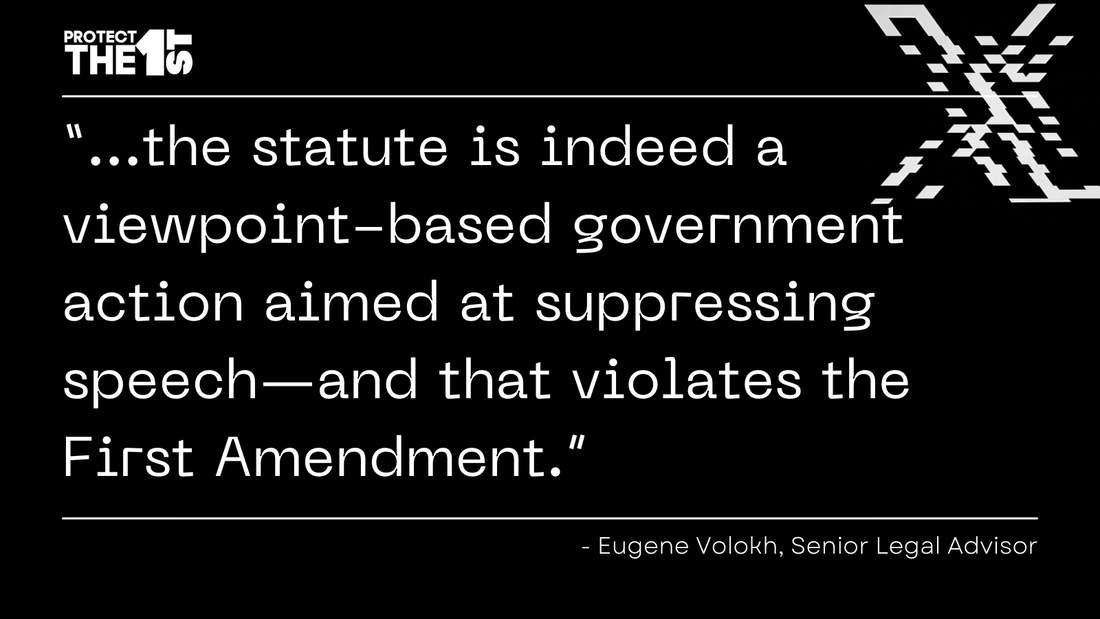
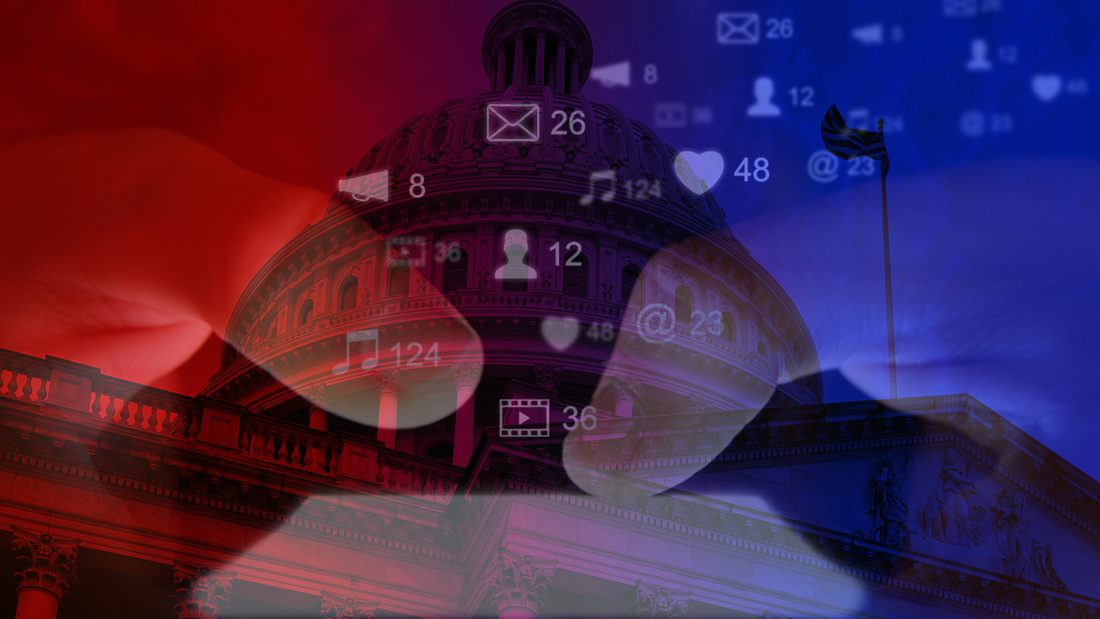

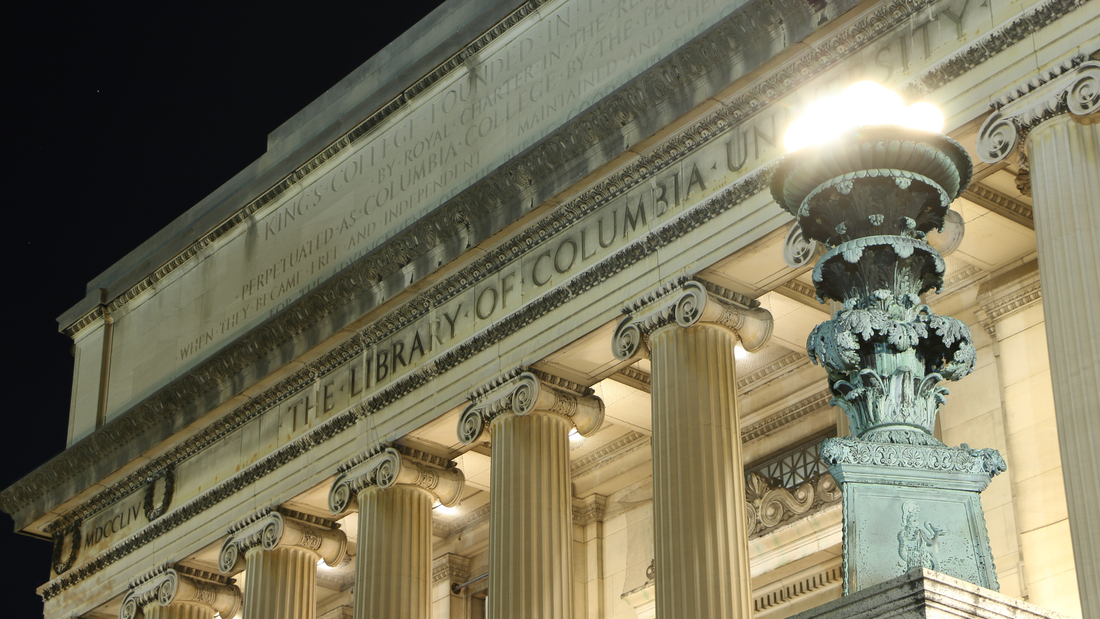

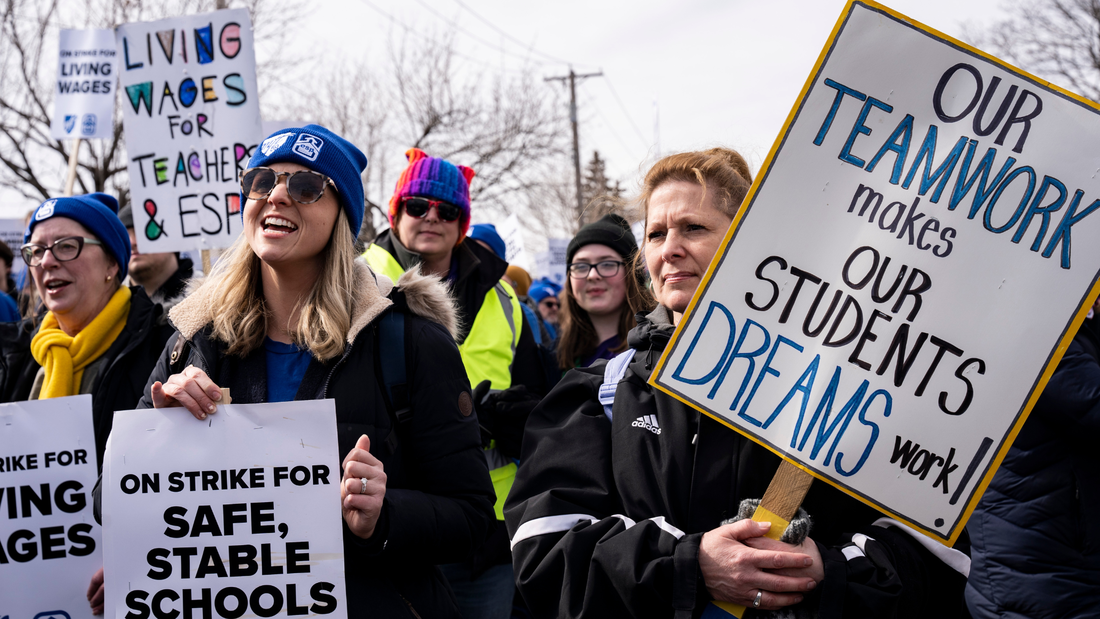
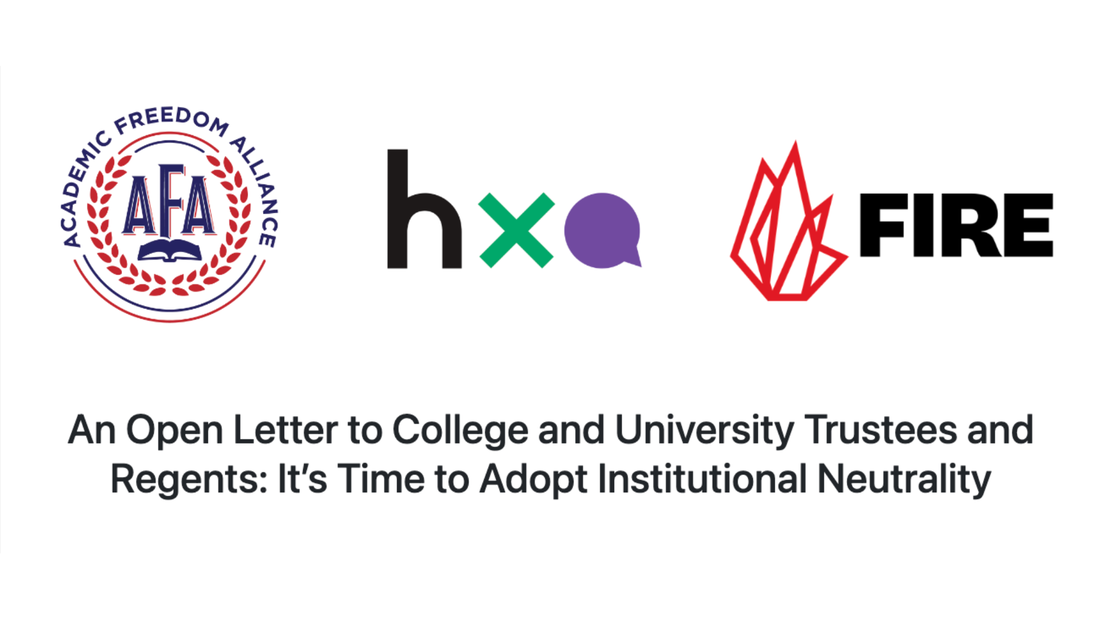

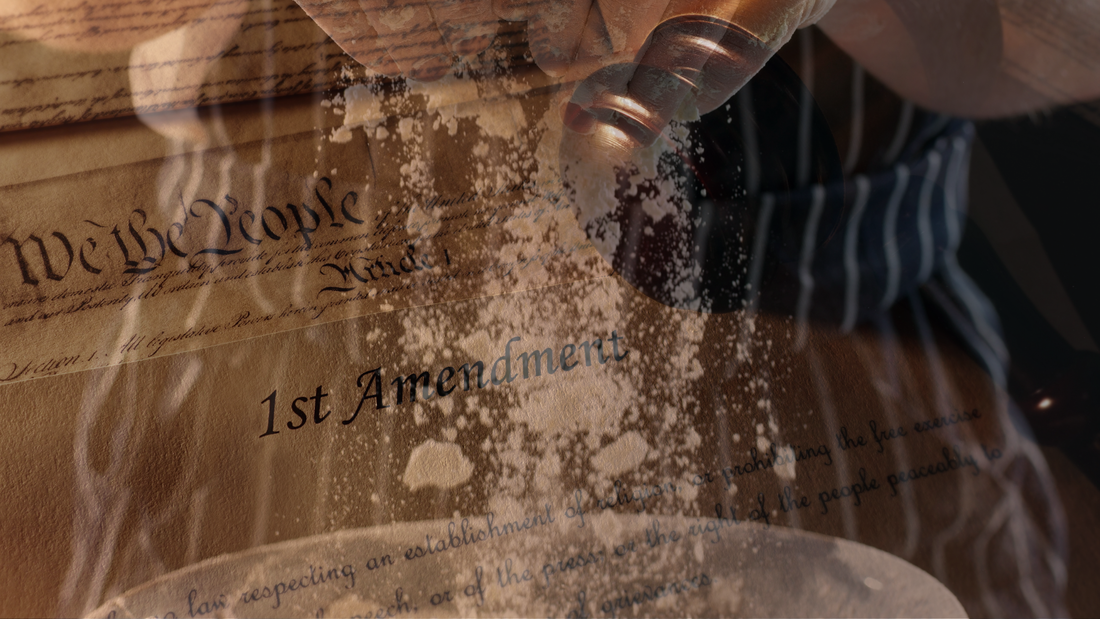




 RSS Feed
RSS Feed